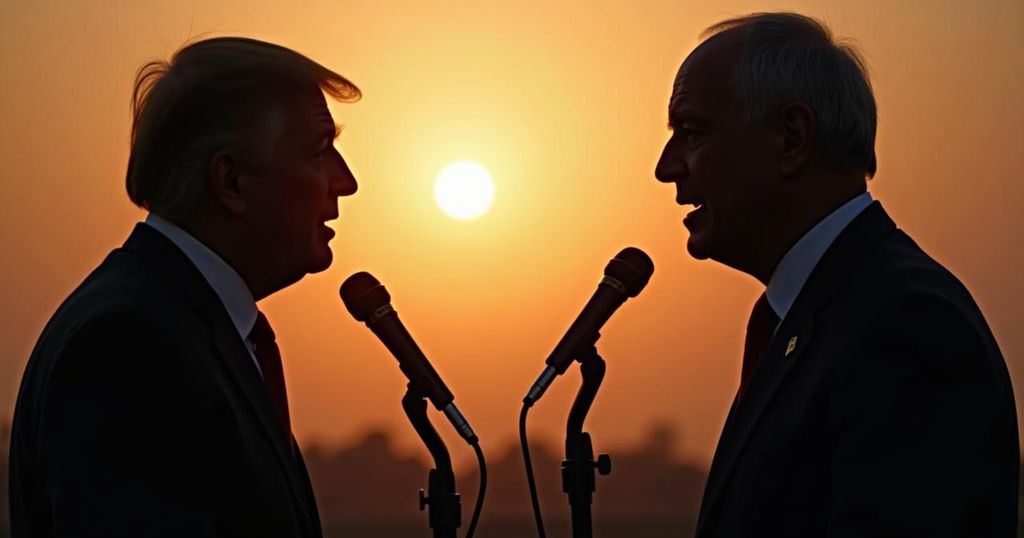In his UNGA speech, Indian External Affairs Minister Dr. S. Jaishankar criticized Pakistan’s double game regarding Kashmir and terrorism, asserting strong responses to any provocations. Following India’s demand for changes to the Indus Water Treaty, he emphasized that Pakistan’s economic woes are tied to its support for radicalization. Jaishankar refuted attempts to equate Gaza and Kashmir, solidifying India’s stance ahead of upcoming diplomatic engagements.
In a recent speech at the United Nations General Assembly (UNGA), India’s External Affairs Minister, Dr. S. Jaishankar, decisively addressed Pakistan’s ongoing aggression and rhetoric against India, particularly in relation to the long-standing issues of Kashmir and cross-border terrorism. His statements came shortly after India sought revisions to the 1960 Indus Water Treaty, which Pakistan has utilized amid allegations of supporting terrorism that affects Indian states like Jammu and Kashmir. Minister Jaishankar clarified India’s stance on the matter by asserting that any actions taken by Pakistan would elicit responses that extend beyond military reaction. He highlighted the necessity of a united front against terrorism, emphasizing that Pakistan’s narrative, often escalated through its UN envoy, should not overshadow India’s genuine grievances and rights regarding water security and regional stability. In his speech, Dr. Jaishankar rebuffed Pakistan Prime Minister Shehbaz Sharif’s attempts to correlate the situations in Gaza and Kashmir. He reiterated that Pakistan’s economic struggles were fundamentally linked to its continued propagation of radical ideologies and terrorism. This strategic positioning underscores the Indian government’s renewed determination to reclaim occupied Kashmir and dismantle the terror apparatus operating from Pakistani territory. As India prepares for the Shanghai Cooperation Organization (SCO) summit, Minister Jaishankar’s assertions serve as a warning that any further acts of provocation from Pakistan will be met with severe consequences. His remarks reflect a broader policy approach from the Modi administration, which seeks to dismantle Pakistan’s narrative of victimhood while firmly defending India’s national interests against unyielding hostility from its neighbor.
The ongoing tension between India and Pakistan, particularly over Kashmir, has historical roots dating back to the partition in 1947. Both countries claim the region, which has led to multiple wars and continuous skirmishes. Cross-border terrorism has remained a point of contention, with India accusing Pakistan of harboring and supporting terrorist groups that operate within its borders. The Indus Water Treaty, signed in 1960, was established to regulate the use of rivers, but India’s recent request for modifications signals a shift toward more proactive measures in response to perceived threats from Pakistan. The upcoming SCO summit adds further significance to the current diplomatic climate, as regional leaders convene to address various security and economic challenges.
Dr. S. Jaishankar’s recent address at the UNGA reflects a decisive shift in India’s foreign policy toward Pakistan, emphasizing a no-tolerance approach to terrorism and a firm stance on Kashmir. By redefining the narrative surrounding bilateral relations and publicly challenging Pakistan’s tactics, the Indian government signals its readiness to confront aggression head-on. The comments underscore India’s commitment not only to its sovereignty but also to regional stability, as it prepares for critical engagements with its neighbors at forthcoming international forums.
Original Source: www.hindustantimes.com







